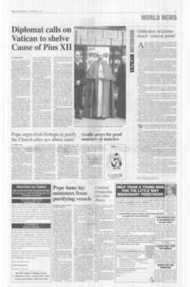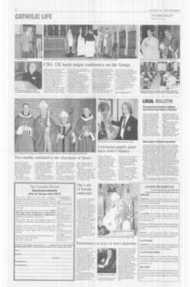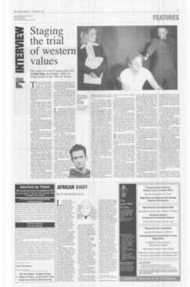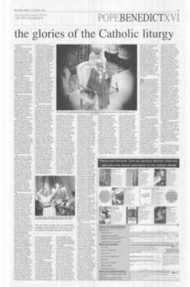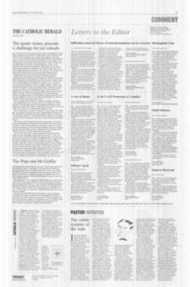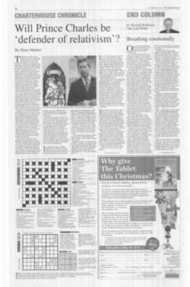Page 11, 3rd November 2006
Page 11
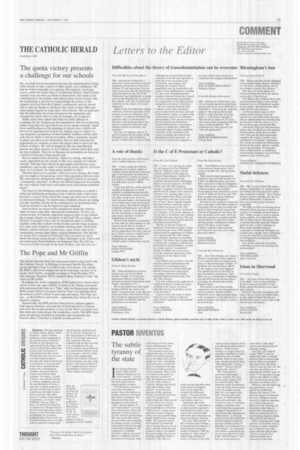
Report an error
Noticed an error on this page?If you've noticed an error in this article please click here to report it.
Tags
Share
Related articles
When Is Spin A Serious Sin .
The Law And Charitable Status
Grace And The Law
From Mrs Bridget Harrington
God's Providence Is Not A Blank Cheque
Difficulties about the theory of transubstantiation can be overcome
From Mr Hal St John Broadbent SIR — Quentin de la Bedoyere's reflections on the meaning of transubstantiation (Charterhouse Chronicle, October 27) are interesting if for no other reason than that the significance of the Eucharist for the life of the Church has been highlighted in recent years by the Magisterium. In spite of this, though, very little has been said explicitly on the subject of transubstantiation.
When Count de la Bedoyere admits "difficulty with the expression of the doctrine in terms of substance and accidents" I would ask the following question: why is it assumed that discourse on transubstantiation can Only be conducted within the Aristotelian lexicon of substance and accidents?
By way of a tentative answer, it pays to explore the theologies of the Eucharist in the early Scholastic period, ie before the Council of Trent. Although the Council held transubstantiation to be the most apt term to name the event occurring at the Eucharistic consecration, and although the Council Fathers appeared to rely on Aristotelian categories in their deliberations, nevertheless the word "transubstantiation" emerged centuries before the Council and, most importantly, long before the reappearance of the physical and metaphysical treatises of Aristotle.
We can conclude from this that Catholics in the early Scholastic period understood substance and transubstantiation without recourse to the Aristotelian categories of substance
and accidents. If we can recover how
they envisioned the Eucharistic species following the consecration, Count de la Becloyere's difficulty (and many others' besides) might be overcome. If the Eucharist is the source nourishing the Church and refreshing ecclesial structures, as Ecclesia de Eucharistia suggests, a recovery of this early perspective could have far-ranging consequences.
Yours faithfully, HAL ST JOHN BROADBENT Molesey, Surrey
blog comments powered by Disqus






